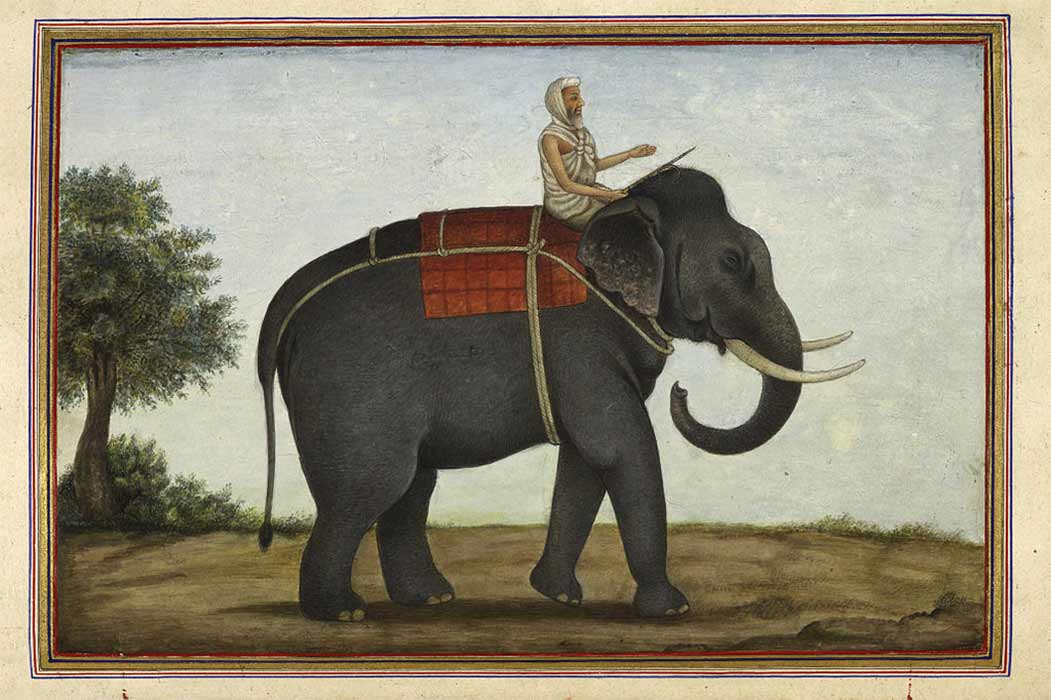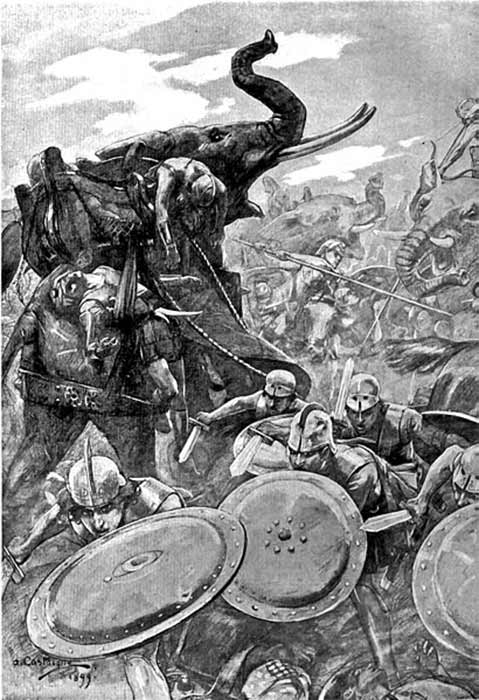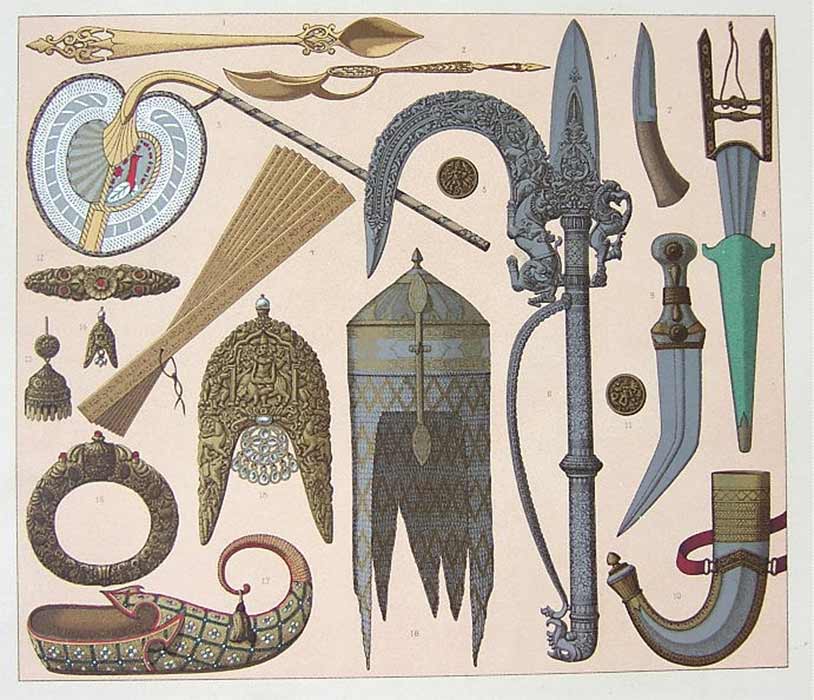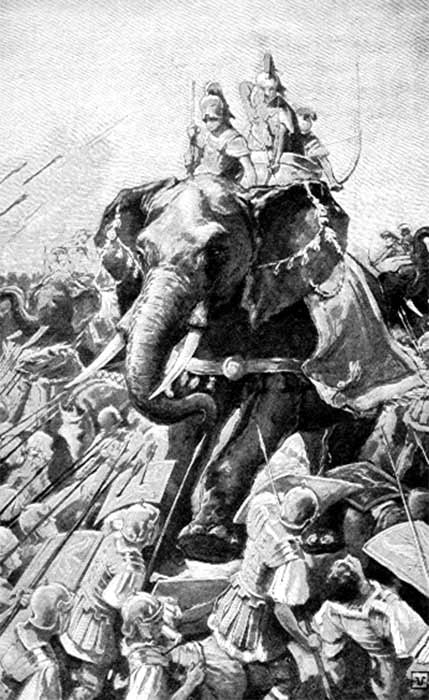
The Mûmakil Elephant Slayers Of The Ancient World
In the ancient world elephants were worshiped as divine symbols, harbingers of good luck and the carriers of wisdom, but they were also deployed to intimidate opposing armies and as highly-influential tools of diplomacy. Perhaps the most archetypal image of elephants in the old world occurred around 331 BC when Alexander the Great’s army encountered war elephants as they swept westwards from Persia into India. Alexander defeated the Indian ruler Porus at the river Jhelum, in present-day Pakistan, who was said to have controlled 100,000 war elephants in his army.

The phalanx attacking the center at Hydaspes at modern-day Punjab Province, Pakistan, when the Macedonian Empire annexed large areas of the Punjab region by Andre Castaigne (1911)(Public Domain).
Elephants are sometimes referred to as pachyderms (thick-skinned). About 50-60 million years ago, Moeritheriums were the roots from which probscideans (elephants’ ancestors) evolved. Moeritheriums were pig-size animals with a pronounced upper lip resembling that of a tapir, that lived about 55 million years ago. As these creatures evolved their heads got smaller and their upper lips became longer and more flexible until finally they became trunks. The divergence between African and Asian elephants from their common ancestors, mastodons and wooly mammoths, occurred about six million years ago. In 2009 a 200,000-year-old well-preserved skeleton of a giant prehistoric elephant was unearthed in Java. This creature was measured at having stood at around four meters (13 feet) tall and weighed in at more than 10 tons.

Antique steel hook used by elephant riders of the empire of the Great Mogul (Public Domain)
Adrienne Mayor’s 2014 book Animals in Warfare examines the military applications of animals in ancient warfare and it explains that some creatures deployed against enemies “were involuntary zoological allies, such as herds of cattle and wasps, whose aggression leads them to attack human targets.” Other animals were trained for specific purposes, for example dogs for sentry duty, mules and camels for carrying baggage, horses for cavalry mounts and elephants for attacking. The oldest evidence of a trained war elephant comes from the Indus Valley Civilization around 2000 BC. Elephant trainers, riders and keepers were called mahouts and they were responsible for capturing and handling the wild elephants, then training them to systematically charge and trample enemies. This work also addressed counter-strategies for defending against war elephant attacks, such as, the use of pigs!
Greek Generals On War Elephants
One of the first recorded battles using war elephants occurred in 318 BC when Polyperchon, one of Alexander's generals, besieged Megalopolis (Peloponnesus) during the wars of the Diadochi with 60 Asian elephants. A veteran of Alexander's army, named Damis, helped the besieged Megalopolitians to defend themselves against the elephants and eventually Polyperchon was defeated. Those elephants were subsequently taken by Cassander and transported, partly by sea, to other battlefields in Greece, on what is believed to have been the first elephant-transport sea-vessels.
- War Elephants: The Military ‘Tanks’ of the Ancient World
- Unsolved Mystery: Where did Hannibal get his War Elephants?
- 2300-Year-Old Fortress Which Guarded Port That Supplied War Elephants Found in Egypt in Major Discovery
War pigs, it has to be said, had it rough. The poor creatures were used in ancient warfare as a countermeasure against war elephants and it is recorded that the Romans used wild boars in their fight against the war elephants of the Tarantines. Pliny the Elder noted that “elephants are scared by the smallest squeal of the hog” and Romans exploited squealing pigs (and rams) to repel the war elephants of Pyrrhus, the king of Epirus. Pyrrhus was asked by the people of the Greek city of Tarentum in southern Italy to help them in their war with the Roman Republic. In 279 BC Pyrrhus invaded southern Italy with 26 armed, and armored, elephants. Pyrrhus hoped his tuskers would terrify the defending Romans, but he had not counted on the beasts panicking when the pigs were released among them, and they bolted, trampling Pyrrhus’ own foot soldiers.





